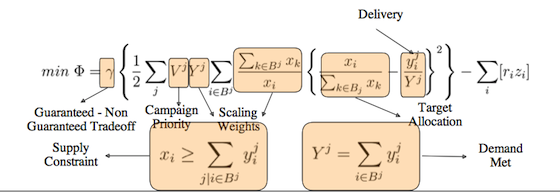For years, we have explained that the Internet’s future has been tied to the TV and advertising business models of the past. So it’s not surprising that this week comScore announced that “digital overnights” are now part of its service offerings for marketers and advertisers. In a release, they explain that its “new service features several groundbreaking enhancements for digital media planning and optimization, including the availability of digital GRP “overnights,†campaign reporting across global markets, verification of ad delivery by audience and geography, and detailed campaign analysis by creative and placement strategy…By offering views of digital performance that have long been the standard in the TV business, any buyer should be supremely confident about allocating dollars to the platform where the most valuable attention can be found.â€
Nielsen also added ratings for online programming to its product offerings, as part of the move to measure and track users across all platforms, including mobile. As its release noted: “marketers and media companies alike will now have a simpler way to measure the combined reach of TV, the web and even mobile advertising…Nielsen will be able to provide reach, frequency and Gross Rating Point (GRP) measures for online advertising campaigns of nearly any size, running nearly anywhere on the web. Campaign reporting will be available within just days after the launch of a campaign, providing vital delivery information in-flight to both advertisers and publishers.”  Facebook, which is partnering with Nielsen to help expand its big brand ad selling business, enthusiastically endorsed the new product: “More and more marketers are creating integrated, cross-platform campaigns and we need a better way to measure how they perform,†said Mike Murphy, Vice President, Global Sales, Facebook. “We think creative campaigns are more effective when marketers combine TV and digital in a way that extends the big idea online and makes it social through an ongoing, two-way connection. With their expertise, Nielsen can help marketers measure the impact of true cross-platform campaigns.â€

 That’s the formula Yahoo is using to please its largest advertisers, explains an article in
That’s the formula Yahoo is using to please its largest advertisers, explains an article in